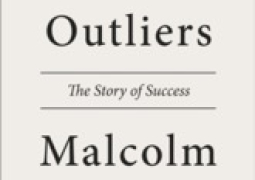The author further says that philosophy is a rational enquiry into the ultimate nature of things through wonder, critical reflection and systematic reasoning. In method, he posits, philosophy is a conceptual analysis which makes use of arguments to arrive at its positions.
“It attempts to establish its position not by imposition of views but through a careful and critical search, employing premises on which to build its conclusions. As a conceptualistic discipline, philosophy thrives on logic. Thus nothing is more relevant to the philosophic enterprise than logic. Since the philosopher operates at the conceptual level, the need for a methodic approach to his art is always there,” he asserts. He goes on to state that it is through this methodic approach that the philosopher arrives at truth.
The author gives us two methods of enquiry, namely the analytic method and dialectical method. He makes us to understand that many philosophers practise their trade with what is popularly known as the analytical method. This method, he explains, involves the use of many instances from where the philosopher builds his idea and comes out with a thesis or position. “Through the use of analytical method, the philosopher tries to establish a position through a reasoned inference from a wide range of examples,” he writes.
He further says that another dimension of the analytical method is the logical examination of all facts involved in a particular issue from where the philosopher comes out with a position. This dimension, he posits, is very remarkable in the works of analytic philosophers like Bertrand Russell. He asserts that when the philosopher applies the methods of analysis in the first instance, he makes some deductions and achieves a thesis.
“When the philosopher engages in his enterprise through the method of analysis, he often applies imagery or establishes examples and seeks to deduce his opinion from this point of view. It is from here that he establishes his thesis and achieves his position,” he reveals.
The dialectical method, according to the author, is the philosophical method that conducts its search for truth by establishing a position and subjecting it to critical consideration in order to achieve a higher or truer position. He makes us to understand that the dialectical method implies the art of debate. “In this art, questions are raised and answers provided. The term dialectics itself dates to the time of the Greeks and it means the art of analysis and investigation of truth and elimination of falsehood and contradictions by a rigorous and critical method of question and answer. When dialectics involves the human agency, it is better referred to as dialogue,” the author writes. He also cites the speculative method, the existentialist method, the phenomenological method, the method of deduction and the method of induction as examples.
On the branches of philosophy, the author further states that the various bases on which philosophical questions are raised constitute what has come to be known as the various branches of philosophy.
He mentions the major branches of philosophy as thus: Ethics, Epistemology, Metaphysics, Logic, Social and Political philosophy and Aesthetics.
On Ethics, the author states that the philosopher may wish to busy himself with the question of the good life and may wish to find out what in itself constitutes the good life. When the philosopher raises such questions, he asserts, he wants to find out how man can conduct the affairs of his life. “He wants to know the laws of conduct the things man should do and the things man should not do. He wants to find out what man should consider as morally evil and those he should consider as morally good. The attempt to determine this may lead him to a lot of theories,” he posits further.
On Epistemology, the author goes on to say that Epistemology expounds many theories that border on knowledge and raises critical questions bordering on our idea of knowledge. It examines the basis of our knowledge claims and attempts to provide a justification for what we claim to know, he explains. “Epistemology establishes the foundation for what we claim to know where this foundation is faulty, the whole edifice on which we build on ideas would be evidently faulty,” the author says.
He also dwells on Metaphysics, and states that in it, the philosopher confronts reality at a deep and most engaging level, and raises the question of being and asks what it means to exist. The author further dwells on Logic, Social and Political philosophy and Aesthetics. He dwells on the minor branches of philosophy, namely Philosophy of Religion, Philosophy of Education, Philosophy of Mind, Philosophy of Science, Philosophy of Social Science, Philosophy of Law, Philosophy of Literature, Philosophy of History, Medical Ethics and Philosophy of Language.
For further reading, the author refers us to the following books: A.O.Oyeshile & O.L. Ugwuanyi, “Elements of Philosophy and Logic,” (Benin: Favourite printers, 1997) as taken from I. M. Copi, “Introduction to Logic” (6th edition), (New York: Macmillan publishers, 1982), P3
“Origin of the Work of Art” is an Essay (a chapter) in one of Heidegger’s famous work- “Basic Writings” and Joseph Omoregbe,” An Introduction to Philosophical Jurisprudence,” (Lagos: Joja publishers, 1994) P. vii.





